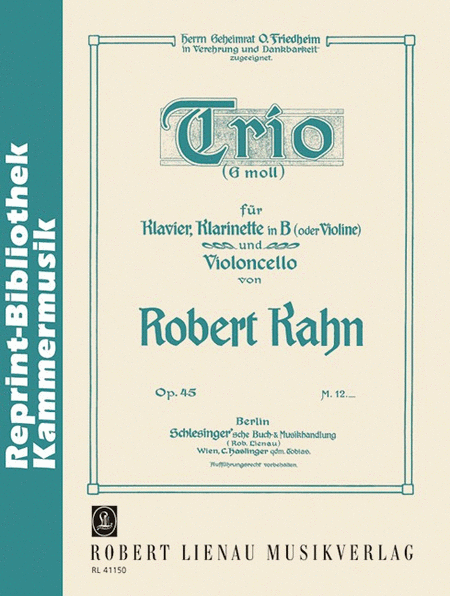Robert Kahn (1865 - 1951)
 Allemagne
Allemagne
 Allemagne
AllemagneRobert Kahn (21 July 1865 – 29 May 1951) was a German composer, pianist, and music teacher. Kahn was born in Mannheim, the second son of Bernhard Kahn[1] and Emma Eberstadt. One of his seven siblings was the wealthy financier Otto Kahn whose son Roger Wolfe Kahn was a successful jazz musician, composer and aviator. His parents belonged to a distinguished German-Jewish family of bankers and merchants. In 1882, Kahn entered the Königlichen Hochschule für Musik in Berlin, where he studi ... (Read all)
Source : Wikipedia
Source : Wikipedia
FREE SHEET MUSIC
Active criterias:
Search
| ||||||||||||||||||||||||||||||


































 SHEET MUSIC
SHEET MUSIC